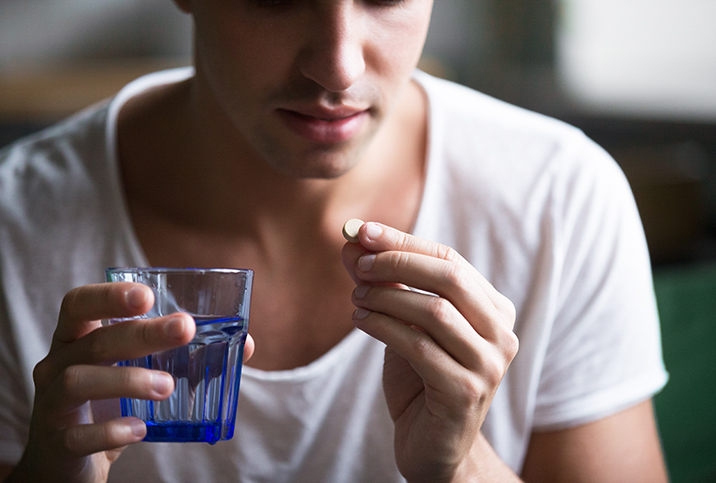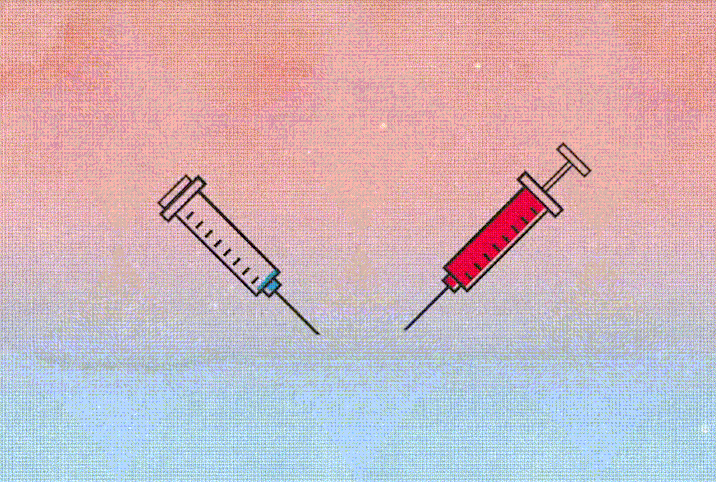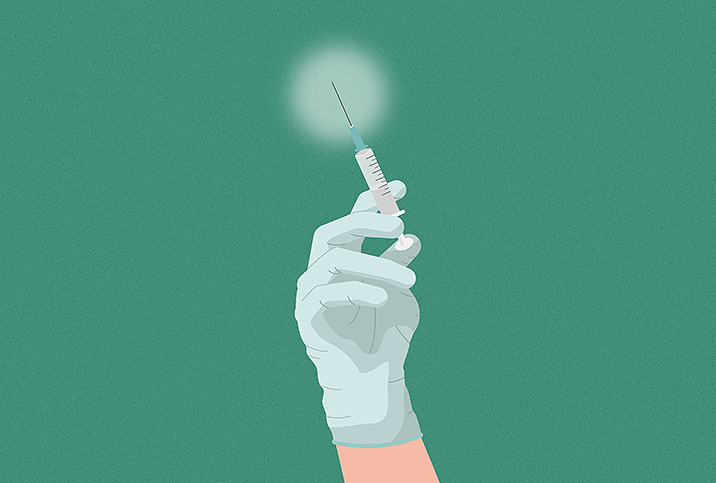The Effects Testosterone May Be Having on Your Body

Evidence suggests testosterone might enable neuroplasticity, improving motivation and competitive performance. It could be protective of rotator cuff tears. Higher levels seem to be associated with better bone mineral density and greater proportions of oxygen-carrying red blood cells within the blood (higher hematocrit). Too much, though, is tied to an increased risk of prostate cancer and hypertension.
In men, testosterone aids in increasing muscle mass and strength, as well as in decreasing adipose tissue. When its levels decline with age, changes in body composition often include muscle loss and corresponding decreases in functionality, as well as accumulation of fat.
Testosterone is one hell of a sex steroid hormone.
Derived from cholesterol and essential for the male reproductive system, the androgen is produced as a result of the hypothalamus releasing gonadotropin-releasing hormone (GnRH), which stimulates the synthesis and the release of luteinizing hormone (LH) by the pituitary gland. LH then makes its way through the bloodstream to the testes, where it acts on the Leydig cells responsible for generating the hormone.
Testosterone plays an important role in male puberty but also affects the adult body, and its diminution in older men can cause demonstrable physiological changes and challenges, some of which might be addressed through testosterone therapy.
Your hair on testosterone
The hormone promotes the growth of body and facial hair, but can also lead to hair loss.
"If you are very high in testosterone, you actually get that more typical male pattern baldness," said Sirpi Nackeeran, M.D., M.P.H., a recent University of Miami Miller School of Medicine graduate who is headed for a residency at UC San Diego.
In such cases, hair loss tends to occur on top of the head, while hair continues to grow on the sides.
Testosterone and sexual function
Testosterone is a boon to libido.
"From a man's perspective, one of the most startling effects, if he has a low testosterone, is that you can lose all sexual function and the ability to have erections and interest in sex," said Channa Jayasena, Ph.D., a clinical senior lecturer and consultant in reproductive endocrinology and andrology at Imperial College and Hammersmith Hospital in London.
The hormone also helps make sperm—or it doesn't. Jayasena likened the role of testosterone in the production of sperm to the manufacture of automobiles.
"Imagine the testes are like a car factory and instead of making cars, they make sperm," he explained. "The final step in producing the final shape of the sperm with the tail requires…really high levels of testosterone inside the testes, and that's exactly what it's needed for, but if you give someone testosterone from the outside, it actually switches off the factory, switches off the testes working. And that's why people who take anabolic steroids get infertile."
Anabolic effects of testosterone
Testosterone is anabolic, which means it helps build muscle, bone and the bone marrow needed for the manufacture of red blood cells, explained Richard Quinton, M.D., a consultant and senior lecturer at Newcastle University in the United Kingdom.
As a result of testosterone's effects, hemoglobin—the protein in red blood cells that transport oxygen to bodily tissues—is often about 20 percent higher in men than in women or children.
The testosterone-estrogen connection and breast development
An imbalance between testosterone and the hormone estrogen can cause gynecomastia, the glandular growth of breast tissue in men. Quinton said testosterone deficiency, excess estrogen or both can contribute to breast development.
As a prohormone, testosterone can be converted into dihydrotestosterone (DHT), another androgen even more potent than its precursor. Alternatively, the enzyme aromatase can help convert it into estrogen, which is important for libido. In effect, some of the functions of testosterone in men are mediated by a sex hormone commonly associated with the female reproductive system.
Problems associated with low-T
Nackeeran, who's been involved in and directed a number of studies looking at testosterone's functions, said one way to examine the hormone's effects is to consider what happens when someone is testosterone deficient.
He co-authored "Association Between Low Testosterone and Anaemia: Analysis of the National Health and Nutrition Examination Survey," a study published in 2021. The findings suggested men are at higher risk of anemia if they have low testosterone—defined by the American Urological Association as less than 300 nanograms per deciliter (ng/dL)—and that there's a positive association between low serum testosterone and low serum hemoglobin.
Nackeeran said low-T, synonymous with hypogonadism, can result in suboptimal energy levels and feelings of malaise.
"If you have hypogonadism, you will be prone to osteoporosis and fracture," Quinton said. "You'll also be prone to having anemia."
Guys with congenital hypogonadism who require exogenous, or external, testosterone can face potentially profound and sometimes enduring psychological issues.
"These men carry lasting issues of body image," Quinton said.
Depression, social isolation and reduced levels of sexual activity compared to peers are all possible and can still occur despite testosterone therapy.
"They bear the psychological scars of the original diagnosis," Quinton explained.
Whether it's a symptom or the causal root, low-T is associated with several chronic health conditions, including autoimmune diseases, cancer and diabetes, Nackeeran said.
The benefits and risks of testosterone therapy
Not every adult male benefits from testosterone therapy, but most do, although it does depend on why they start taking the hormone exogenously.
"The strongest improvements are in their strength building, like fitness, and in their mood and their fatigue and their libido," Nackeeran said.
But testosterone therapy won't really help with fertility issues, such as a lack of spermatogenesis.
"When we give you testosterone, your body interprets that as, 'Oh, I have too much testosterone,'" Nackeeran said. "We need to downregulate the testosterone being produced around the sperm and so the sperm don't grow as much, but you get all the other effects of testosterone."
Like corticosteroids, a sex steroid hormone such as testosterone dampens immune function, Nackeeran said, which could be a concern for some men.
Acne, male pattern baldness and testicular shrinkage are potential risks, especially if users abuse the therapy.
Despite some evidence of testosterone's positive influence on mood, a study called "Testosterone Therapy Is Associated With Depression, Suicidality and Intentional Self-Harm: Analysis of a National Federated Database," co-authored by Nackeeran and published in 2022, found long-term use of testosterone to be associated with depression and suicidality.
Heart health related to the use of exogenous testosterone is also the subject of mixed findings.
"We know that testosterone might make your heart muscle stronger, which is great, but we also don't know if the effects of testosterone increasing your blood cell concentrations—thickening your blood, essentially—results in more clotting events and major cardiac events and deep vein thromboses that are then deadly," Nackeeran said. "We don't know if that balances out."


















